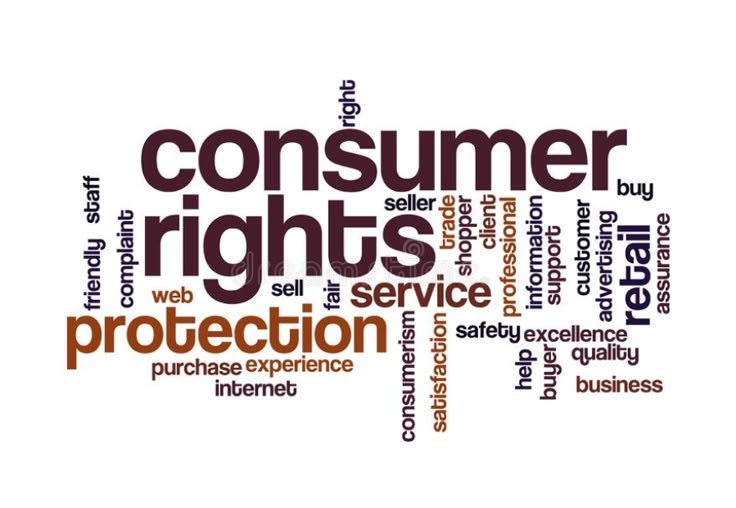Let All Trade Be Fair Trade: Upholding Consumer Rights in a Global Economy
 SOUJANYA R
SOUJANYA R
In the bustling markets, sleek online stores, and crowded shopping malls, there’s something deeper happening beneath every transaction. Every time you swipe your card, scan a QR code, or hand over cash, you’re participating in the vast web of global trade. But have you ever paused to ask: Is this trade fair?
Today, trade is more globalized than ever before. Goods cross oceans, borders, and countless hands before reaching the shelves in front of you. But the truth is, not every link in this chain benefits equally. Many workers toil under unfair conditions, small producers are crushed by large corporations, and unethical practices are hidden behind glossy advertisements. This is where the concept of Fair Trade steps in—and why, as consumers, understanding and asserting our rights becomes vital.
What Does Fair Trade Really Mean?
Fair Trade is more than just a sticker or certification on a packet of coffee or chocolate. It’s a social movement and an ethical standard. It aims to ensure that producers—whether they’re farmers, artisans, or factory workers—are treated fairly, paid decently, and work under safe, humane conditions.
But Fair Trade also benefits us—the consumers. It guarantees that the products we consume are made with integrity, sustainability, and responsibility. It ensures we are not unknowingly contributing to child labor, exploitation, or environmental destruction.
Fair Trade supports:
Ethical wages for workers
Safe working environments
Environmentally friendly production methods
No forced or child labor
Long-term, fair partnerships between buyers and producers
In short, it is a system designed to ensure fairness at every step—from the fields to your home.
Consumer Rights: The Pillars of Fair Trade
As consumers, we have rights that safeguard us against fraud, exploitation, and unsafe products. These rights are deeply connected to the ideals of Fair Trade. Let’s explore them:
- The Right to Safety
Consumers deserve products that do not harm them physically or financially. Fair Trade guarantees that producers follow ethical, safe practices—whether it’s ensuring no toxic chemicals are used in farming or that food is handled hygienically.
- The Right to be Informed
Transparency is key. Consumers have the right to honest information about where a product comes from, how it’s made, and who makes it. Fair Trade labels offer this clarity, showing that what you're purchasing supports ethical practices.
- The Right to Choose
Fair Trade widens the marketplace, offering consumers choices beyond mass-produced goods. It allows people to choose products that align with their values—whether that’s eco-friendliness, social justice, or supporting small businesses.
- The Right to Fair Price
Fair pricing benefits both sides of the trade. Consumers deserve products priced fairly without hidden exploitation, while producers deserve to earn enough to live with dignity. Fair Trade creates a balance where no one is short-changed.
- The Right to Sustainability
Our planet and future generations depend on responsible trade. Consumers today are more environmentally conscious, demanding sustainable practices. Fair Trade prioritizes eco-friendly production, ensuring that trade doesn’t cost the Earth.
Why Consumer Responsibility Matters
It’s easy to think of ourselves as powerless in the face of large corporations or global trade policies. But every consumer has enormous influence. Every purchase is a vote—a vote for what kind of world we want to live in.
When we:
Ask where products come from,
Choose Fair Trade-certified goods,
Support brands that prioritize ethical production,
we are exercising our consumer rights in a meaningful way. We are sending a clear message: We value fairness over profit, people over exploitation, and sustainability over greed.
How Can You Advocate for Fair Trade and Consumer Rights?
Here are simple but powerful steps you can take:
- Educate Yourself
Research the origins of products you buy. Learn about the conditions under which they’re made. Follow Fair Trade organizations, documentaries, and articles to stay informed.
- Choose Fair Trade Products
Look for certifications such as the Fair Trade mark, Rainforest Alliance, or other ethical trade labels. By purchasing these, you are directly supporting fair labor practices and ethical trade.
- Demand Transparency
Ask brands and businesses: Who made this product? Where did it come from? Do you follow fair labor practices? The more consumers demand transparency, the more companies will be pressured to disclose their supply chains.
- Support Local and Small Producers
Often, small-scale farmers, artisans, and entrepreneurs uphold ethical practices but struggle against giant corporations. Supporting local businesses can promote fairness in trade.
- Spread Awareness
Talk to your friends, family, and social circles about consumer rights and fair trade. Social media is a powerful tool—use it to share information and encourage ethical consumption.
Let’s Create a Fairer World, One Purchase at a Time
In the grand tapestry of trade, every choice matters. As consumers, we hold rights that protect us, but we also carry responsibilities. When we stand up for Fair Trade, we not only ensure our rights are respected but uplift the rights of countless producers across the globe.
Let’s envision a world where every trade is a fair trade, where dignity and respect are woven into every product we buy, and where ethical choices shape a just, sustainable future for all.
Let’s make fairness not an exception, but the rule.
Subscribe to my newsletter
Read articles from SOUJANYA R directly inside your inbox. Subscribe to the newsletter, and don't miss out.
Written by
